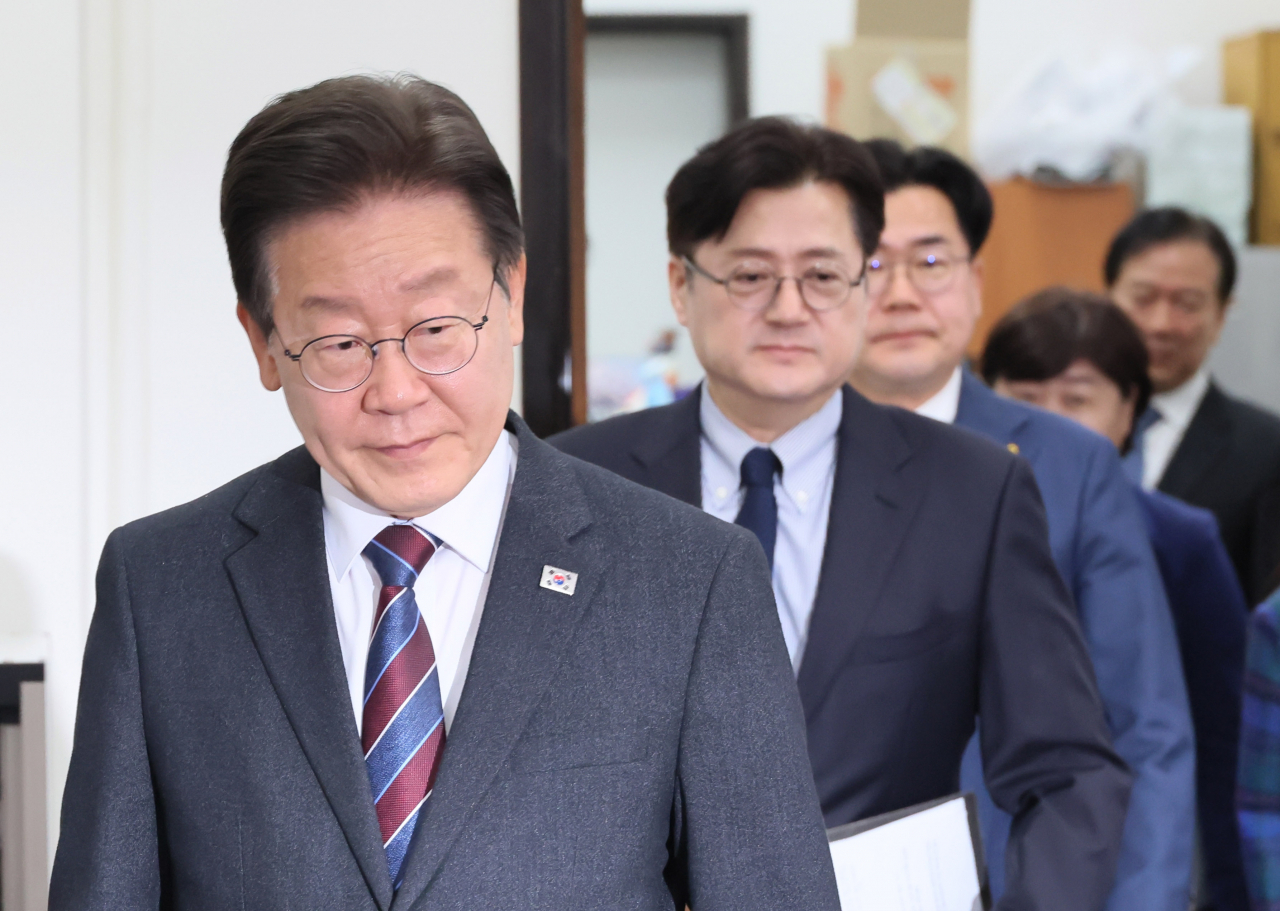Democratic Party of Korea pushes universal cash subsidies to ‘save economy’
Opposition head rejects president’s criticisms of being “populist”
By Kim ArinPublished : April 17, 2024 - 16:59

The Democratic Party of Korea on Wednesday proposed doling out monetary subsidies of some 14 trillion won ($10.1 billion) in total to boost consumption, reiterating the party’s key general election pledge.
During a leadership meeting, the Democratic Party’s leader Rep. Lee Jae-myung said his party would put forward an official proposal for adopting what he called “emergency measures” to “restore livelihoods and save the economy.”
Making a case for universal cash payments, he said that the “South Korean people’s livelihoods and our economy are in total ruins.”
President Yoon Suk Yeol has called the Democratic Party plans “populist,” saying “ill-advised cash handouts can jeopardize the future of this country.”
In an apparent response to the president’s reaction, Lee said, “It’s not populism to salvage the economy.” He went on, “Our fiscal policies should strive to address the economic challenges for South Koreans more aggressively.”
Over the course of the campaign ahead of last week’s election for the National Assembly, the Democratic Party said it would give each household an average of around 1 million won as an emergency package and provide small business owners with relief on interest rates.
According to Lee, 13 trillion won would be spent on subsidies for households with 1 trillion won for easing the interest burdens on small businesses.
Ahead of the Assembly election in 2020, the then-ruling Democratic Party and the Moon Jae-in administration had similarly pledged to hand out COVID-19 relief funds for all households.
After a landslide victory of winning more than two-thirds of the Assembly seats, the Democratic Party is now faced with the pressure of following through on its election pledges.
Criticisms from Lee’s political opponents hinge on the notion that distributing funds of that magnitude could lead to adverse consequences for the economy.
Yoo Seong-min, a former four-term lawmaker who was recruited into politics while an economic researcher at the Korea Development Institute, told The Korea Herald that “such a large infusion of cash would result in prices going up even further.”
“The Democratic Party is getting it wrong. Free cash isn’t why people are rallying around the opposition and against the incumbent administration,” he said.
He pointed out that Lee’s promises also lacked practical viability. “Four years ago, they had the power to do that. As an opposition party, they can’t draw up a budget on their own.”






![[KH Explains] No more 'Michael' at Kakao Games](http://res.heraldm.com/phpwas/restmb_idxmake.php?idx=644&simg=/content/image/2024/04/28/20240428050183_0.jpg&u=20240428180321)


![[Grace Kao] Hybe vs. Ador: Inspiration, imitation and plagiarism](http://res.heraldm.com/phpwas/restmb_idxmake.php?idx=644&simg=/content/image/2024/04/28/20240428050220_0.jpg&u=)










![[Herald Interview] Xdinary Heroes shoot for the next level with 'Troubleshooting'](http://res.heraldm.com/phpwas/restmb_idxmake.php?idx=642&simg=/content/image/2024/04/29/20240429050745_0.jpg&u=)